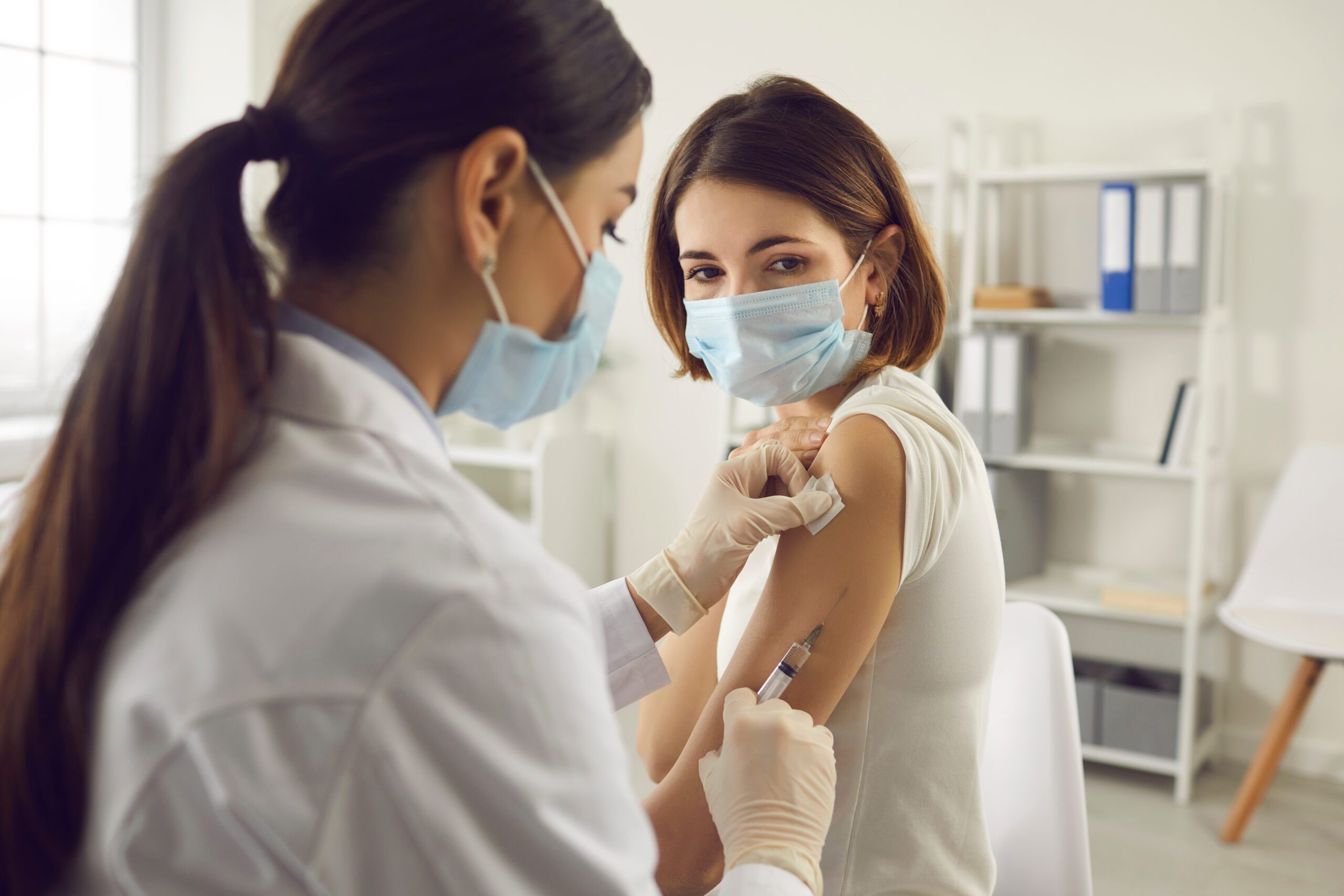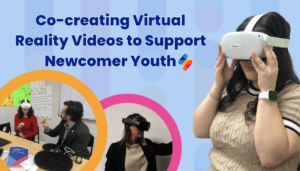With Women’s Health Month in May and Men’s Health Month in June, now is a great time to share parenthood resources from the National Resource Center for Refugees, Immigrants, and Migrants (NRC-RIM). Debunking myths—including those related to fertility, pregnancy, and parenthood—and encouraging vaccinations and booster shots are key to protecting RIM communities from severe illness related to COVID-19.
The COVID-19 Vaccine Does Not Jeopardize Fertility
Unsubstantiated rumors about the vaccine affecting male and female fertility have hurt vaccination rates, including in RIM communities. The COVID-19 vaccine and booster doses do not impact fertility.
While the vaccine is not linked to infertility, COVID-19 itself is. A January 2022 study published in the American Journal of Epidemiology surveyed couples trying to get pregnant. The research team discovered that conception was down 18% in the three months after the male partner was infected with COVID-19.
The COVID-19 Vaccine & Booster Shots are Safe During Pregnancy
Those who are pregnant are more likely to get severely ill from COVID-19 due to immune changes in the body. Further, pregnant people infected with COVID-19 are at increased risk of developing complications that can affect their pregnancy and their baby’s development.
Many clients have expressed that they are concerned about the vaccine and booster during pregnancy because they don’t want to impact the health of their babies. On the contrary, vaccine and booster doses help ensure healthier pregnancies and are strongly recommended for anyone pregnant, breastfeeding, trying to get pregnant now, or who may become pregnant in the future.
Recommended Resources from NRC-RIM
- Get the Facts: Vaccines are Safe for Couples, Pregnant Women, and New Parents: This digestible fact sheet and PSA are available in over 40 languages and include information for RIM communities on vaccine safety pertaining to fertility, parenthood, and breastfeeding.
- Fertility and Parenthood: this conversation guide offers helpful responses related to commonly-asked questions.
- Mothers x Mothers: With this toolkit, organizations can plan and implement health meetups. The toolkit was co-designed with a group of refugee and immigrant women. The elements of the toolkit are informed and tested by mothers’ experiences and create the conditions to have a judgement-free conversation among mothers around the vaccine. While focused on the COVID-19 vaccine, the toolkit could be used to plan health meetups that address other health issues.
- Children Keep Our Community Strong: This animated short explores the perspective of an immigrant mother as she reflects on why she chose to vaccinate her two children. It is available in English and 13 other languages.
- Children Are Our Community’s Future: This sequel to Children Keep Our Community Strong further explains the parents’ decision to vaccinate their two children, and it is spoken from the perspective of the father. It is available in English and 13 other languages.
Looking to learn more? Visit NRCRIM.org for COVID-19 health education, toolkits, and resources that center the needs of refugees, immigrants, and migrants. If you need a resource but don’t see it, or your agency needs technical assistance on engaging with clients around COVID-19 and the vaccine, contact the NRC-RIM team at nrcrim@umn.edu.










